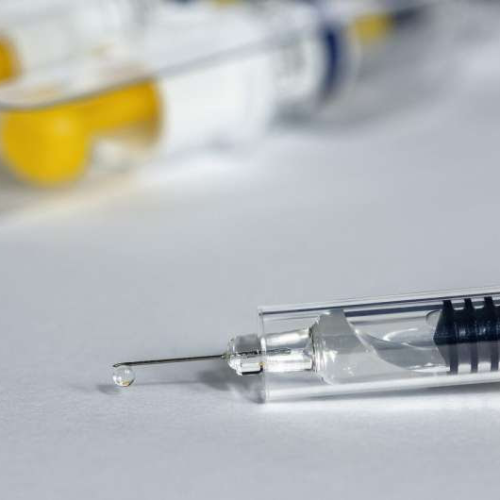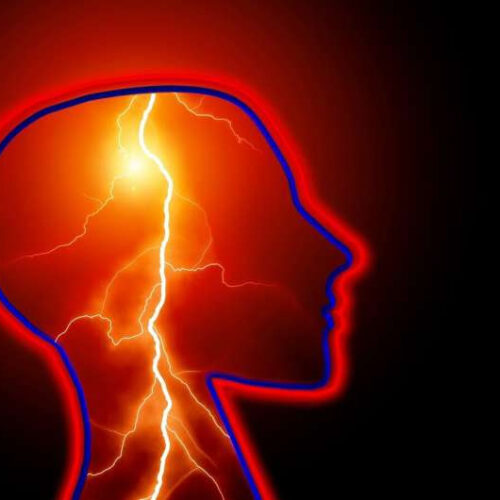Credit: Unsplash/CC0 Public Domain Long-term, low-dose antiviral treatment reduces the risk for potentially vision-damaging bouts of inflammation and infection, as well as pain, which occur when shingles affects the eye, according to new research presented October 19 at the annual meeting of the American Academy of Ophthalmology (AAO) in Chicago. Shingles occurs when the varicella-zoster virus, which...
Tag: <span>shingles</span>
New shingles vaccine could reduce risk of dementia
July 25, 2024 by University of Oxford Credit: CC0 Public DomainA study of more than 200,000 people by researchers at the University of Oxford found at least a 17% reduction in dementia diagnoses in the six years after the new recombinant shingles vaccination, equating to 164 or more additional days lived without dementia. The paper...
What to expect when you have shingles
Shingles causes a painful rash, itching, and burning skin followed by oozing blisters. Shingles usually lasts 3–5 weeks, and the blisters typically take around 10 days to heal. After it heals, most people will not have shingles again. Shingles is a viral infection that affects approximately 1 in 3 adults in the United States. Around...
Mystery solved? How shingles can increase stroke risk
Researchers may have found the answer to the question: How does shingle increase stroke risk? Image credit: Dann Tardif/Getty Images. A new study solves a long-standing riddle: Why does getting shingles increase the risk of stroke? Tiny exosomes appear to be the mechanism behind the connection. They contain proteins involved in clotting and the activation of...
Researchers reveal why shingles can lead to stroke
by CU Anschutz Medical Campus Credit: CC0 Public Domain Scientists investigating why people who have had shingles are at a higher risk of stroke, now believe the answer lies within lipid vesicles called exosomes that shuttle proteins and genetic information between cells, according to new research from the University of Colorado Anschutz Medical Campus. The...
Preventing long-term pain from shingles
Researchers from the University of Bristol are recruiting patients with newly diagnosed shingles into a new study, to see if they can prevent the long-term pain which commonly persists after the rash has healed. About one in three people get shingles, which causes a painful rash. People with shingles should be seen by their GP...
Cancer patients may face greater risk of shingles
Experts say development of new vaccines might help prevent shingles in cancer patients. The study, of about 240,000 cancer patients in Australia from 2006 to 2015, found that any type of cancer was associated with a 40 percent increased risk of developing shingles, compared with not having cancer. (HealthDay)—Newly diagnosed cancer patients may be at increased risk for the painful skin condition shingles, a new study finds. Patients with a blood-related cancer had the greatest shingles risk—more than three times...
Cancer patients face higher risk for shingles, new vaccines hold promise for prevention
People newly diagnosed with cancer, particularly blood cancers, and those treated with chemotherapy have a greater risk of developing shingles, according to a new study in the Journal of Infectious Diseases. The findings may help guide efforts to prevent the often painful skin condition in cancer patients through the use of new vaccines. The large...
Chickenpox, shingles and vaccines—expert discusses what you need to know
What’s the difference between chickenpox and shingles? Should you get the vaccine? Find the answers below. Credit: iStock Chickenpox and shingles generally won’t kill you, but for some adults, they could result in a trip to the hospital. So with a new shingles vaccine now available, should you consider vaccination to avoid chickenpox and shingles...
Why getting the new shingles vaccine is a good idea—even if you got the old one
It’s a good idea for most Canadians 50 and older to get the newest vaccine to prevent shingles—even if they’ve already had Zostavax, the only previously available option, says a University of Alberta pharmacist. People who’ve received Zostavax to avoid the misery of shingles may have noticed the arrival of Shingrix, a new vaccine that...
- 1
- 2




